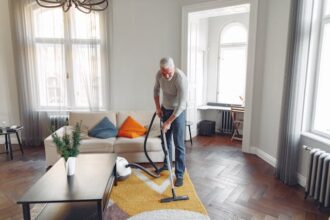Recent evidence suggests that meaningful social engagement can be a powerful safeguard for brain health. A team from The University of Texas at Austin and the University of Massachusetts Boston has shown that older adults who regularly help others outside the home experience a significantly slower rate of cognitive decline. Their study, published in Social Science & Medicine, draws on more than two decades of data and highlights how even modest acts of support can make a lasting difference as people age.
The research followed over 30,000 U.S. adults aged 51 and above, examining outcomes over 20 years through the nationally representative Health and Retirement Study. Findings revealed that individuals who volunteered formally or who offered informal help to neighbours, relatives, or friends slowed their age-related cognitive decline by 15% to 20%. The most striking results appeared among those devoting just two to four hours per week to helping behaviours, a relatively modest commitment with substantial benefits.
“What stood out to me was that the cognitive benefits of helping weren’t just temporary boosts, but cumulative over time,” explained lead author Sae Hwang Han, assistant professor of human development and family sciences at UT Austin. “Sustained engagement was consistently linked to slower decline, whether through formal volunteering or informal help. And importantly, moderate involvement — just a few hours a week — proved robustly effective.”
The study is notable for considering not only structured volunteering, such as working with charities or community organisations, but also informal acts of support that are often overlooked. These include giving neighbours lifts to medical appointments, assisting with childcare, helping with home maintenance, or offering guidance on financial tasks such as taxes. While about a third of older Americans participate in formal volunteering, more than half engage in such informal helping. Contrary to assumptions that informal assistance carries fewer health benefits because it lacks formal recognition, the study found its cognitive impact to be comparable.
Importantly, the research controlled for factors such as wealth, education, physical health, and mental health, reinforcing the finding that helping behaviours themselves drive the protective effect. The data also showed that individuals who withdrew from helping roles entirely fared worse in terms of cognitive functioning. As Han emphasised, this underscores the need for older adults to remain engaged in meaningful roles, with supports and accommodations in place to help them continue contributing.
The broader implications are profound. With conditions like dementia and Alzheimer’s increasingly common in ageing populations, the study strengthens the case for viewing volunteerism and neighbourly support as public health priorities. Han’s related research has also linked volunteering to lower levels of stress-related inflammation, a biological pathway tied to dementia risk. Taken together, the findings suggest that helping others not only reduces physiological wear and tear but also nurtures the social connections that provide psychological and emotional resilience. In a society grappling with rising loneliness and isolation, the message is clear: opportunities to give support are also opportunities to protect and sustain brain health.
More information: Sae Hwang Han et al, Helping behaviors and cognitive function in later life: The impact of dynamic role transitions and dose changes, Social Science & Medicine. DOI: 10.1016/j.socscimed.2025.118465
Journal information: Social Science & Medicine Provided by University of Texas at Austin








